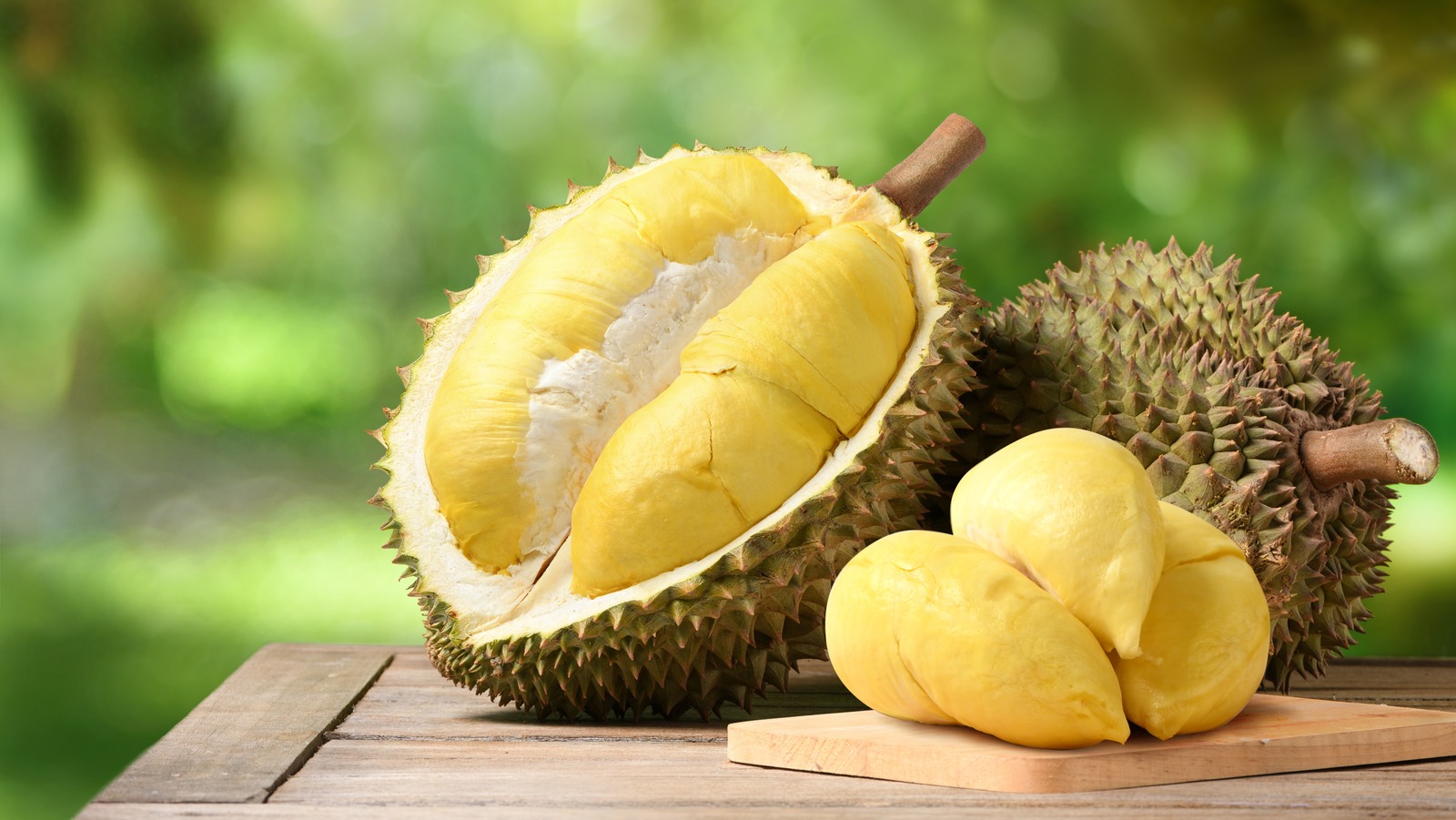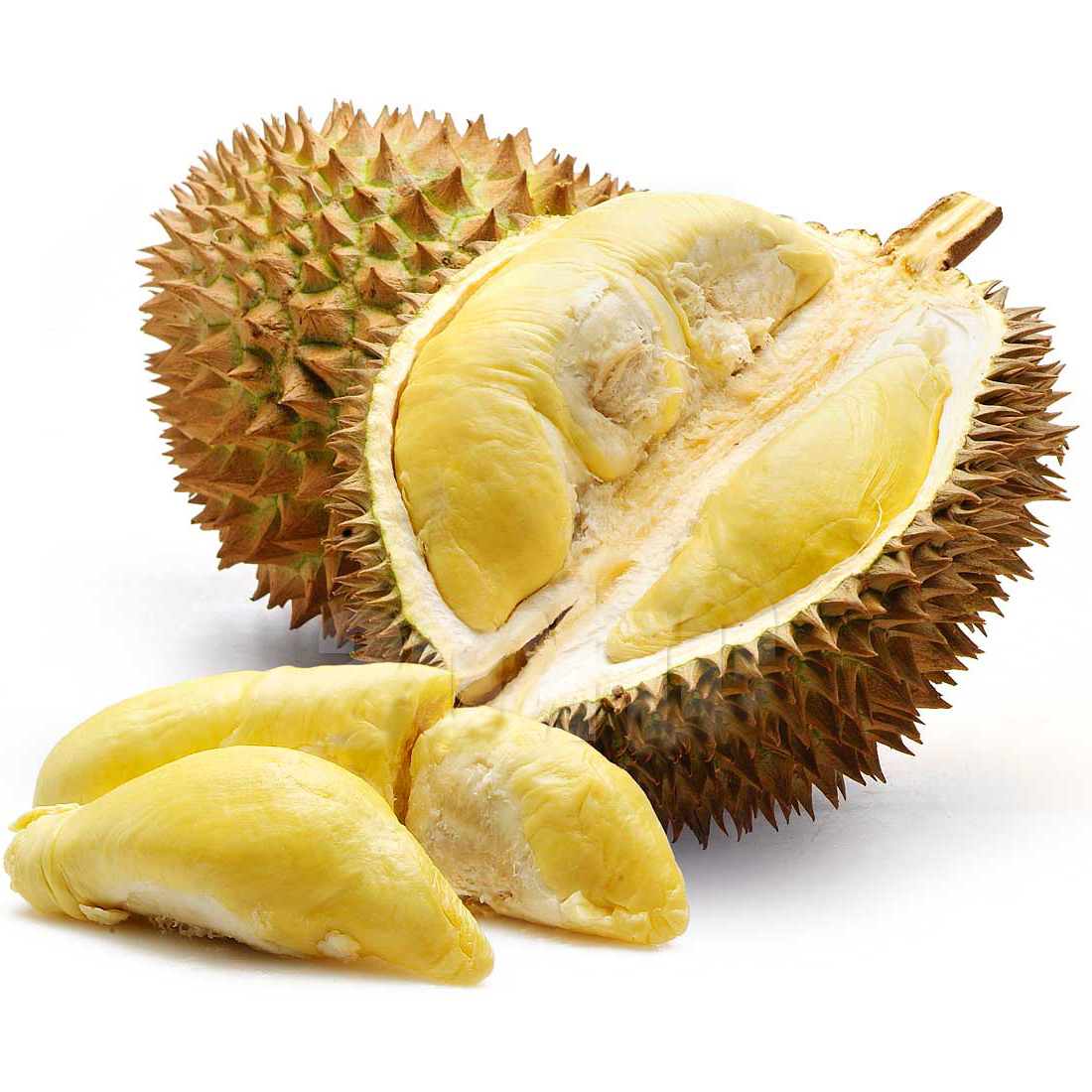Decoding The Durian Fruit Smell: A Tropical Enigma
Have you ever wondered about the fruit that causes such a stir, the one known for its truly unforgettable aroma? The durian fruit smell, you see, is something quite special, often described in ways that might make you pause. This tropical marvel, a real showstopper from Southeast Asia, truly has a scent that gets people talking, for better or worse. It's a smell that, quite frankly, you either love or, well, you don't, and that's perfectly okay.
This remarkable fruit, which can grow quite large, reaching up to 30 cm (12 inches) long and 15 cm (6 inches) across, is so much more than just its scent. It's a seasonal delight, cultivated in places like Indonesia, the Philippines, Malaysia, Vietnam, and southern Thailand. As a member of the *Durio* genus, it's actually related to the hibiscus, or mallow, family, which is rather interesting, don't you think? It's a fruit that has, in a way, captured the hearts and noses of many.
Known across the globe for its potent smell, the durian fruit is also famous for its sizable presence and its spiky, rather intimidating exterior. This exotic tropical fruit, specifically *Durio zibethinus* L., is primarily harvested in those Southeast Asian countries, and it has earned quite a reputation. It's a fruit that, you know, really makes an impression, and its unique characteristics have given it incredible value, both economically and culturally, in its native lands.
Table of Contents
- The King of Fruits and Its Aroma
- What Does the Durian Fruit Smell Like?
- Beyond the Smell: The Fruit's Unique Qualities
- A Look at Durian Cultivation and Appearance
- The Nutritional Side of Durian
- Frequently Asked Questions About Durian
The King of Fruits and Its Aroma
Durian has been given the rather grand title of the "king of fruits" in some countries, and this isn't just because of its size or appearance. No, it's very much because of its distinctive taste, its texture, and, yes, its famously strong smell. This fruit, arguably, stands alone in the world of tropical produce, commanding a unique place in the hearts of those who appreciate it. Its reputation, you see, is something that has grown over time, becoming almost legendary.
The durian fruit, known as "the king of fruits" in Southeast Asia, is instantly recognizable. It's a large, spiky tropical fruit, and its highly potent aroma is a big part of its identity. This tropical fruit offers a rich, complex flavor that, for many, makes the initial olfactory challenge entirely worth it. It's a fruit that, in a way, demands your full attention, from the moment you first catch a whiff to the very last bite.
What Does the Durian Fruit Smell Like?
So, what does durian smell like, you might wonder? Well, this is where things get interesting, and frankly, a bit divisive. The fruit is known for its strong odor when ripe, which, you know, can be quite overwhelming for some. Its powerful scent is a characteristic that sets it apart, making it famous across the globe. People have, in fact, used some pretty strong words to describe it, and that's really saying something.
For those who find the durian fruit smell challenging, it may, quite literally, smell like rotten onions and sweaty socks. That's a rather vivid description, isn't it? This polarizing smell has its detractors, with some calling it "absolutely disgusting," "like wet garbage," or even "the most foul" scent they've ever encountered. It's a smell that, apparently, sticks with you, and not always in a good way, which is why it's so talked about.
Yet, despite these strong reactions to its aroma, the durian is a fruit that people still seek out. The fruit, when cut open, reveals its edible, spongey yellow flesh, which is what all the fuss is about. The experience of the durian, you see, is a full sensory one, where the initial scent gives way to something entirely different. It's a journey, almost, from the moment you encounter its strong smell.
Beyond the Smell: The Fruit's Unique Qualities
Now, here's the surprising part, and something many people don't expect: does durian fruit taste as bad as it smells? The answer, for many who try it, is a resounding no. Despite the powerful aroma that might suggest otherwise, its taste is surprisingly rich. It's often described as sweet, custardy, and wonderfully creamy. This contrast, you know, is what makes the durian such an intriguing fruit, a real culinary paradox.
The durian offers a truly unique eating experience. The combination of its distinctive taste, its powerful smell, and its unusual texture creates something that is, quite honestly, unlike any other fruit. It's a taste that, in some respects, defies its outward presentation, rewarding those brave enough to look past the initial sensory hurdle. It's a fruit that, frankly, challenges your preconceptions about food, and that's a pretty cool thing.
Many who try durian find themselves captivated by its complex flavor profile. It's a fruit that, once tasted, often leaves a lasting impression, prompting people to try it again and again. The richness and creaminess of the flesh are what, basically, win people over, turning skeptics into fans. It’s a fruit that truly needs to be experienced to be understood, and that's the honest truth.
A Look at Durian Cultivation and Appearance
Durian is a seasonal tropical fruit, cultivated extensively in Southeast Asia. Countries like Indonesia, the Philippines, Malaysia, and southern Thailand are key areas where this remarkable tree thrives. It's a fruit that is, in a way, deeply connected to the regions where it grows, becoming a significant part of the local culture and economy. This cultivation, you know, is a testament to its value.
The durian tree itself belongs to the *Malvaceae* family, which also includes hibiscus, which is rather interesting. The fruit itself has a spiny, thick husk, which ranges in color from a dull green to a slightly yellow hue. This protective outer layer, basically, shields the precious, spongey yellow flesh inside. It's a fruit that, visually, really stands out, almost like a natural piece of art.
When ripe, the fruit is known for its strong odor, and it's this ripeness that signals the perfect time to enjoy its unique flavor. The process of harvesting and preparing durian is, in fact, quite an art form in itself, passed down through generations. It's a fruit that, quite literally, embodies the essence of its tropical home, and that's pretty much why it's so cherished.
The Nutritional Side of Durian
Beyond its intriguing smell and delicious taste, durian is also highly nutritious. It offers several health benefits, making it more than just a culinary curiosity. While we can't go into every specific detail here, it's important to know that this fruit is, in fact, packed with good things for your body. This nutritional aspect, you know, adds another layer to its appeal, making it a truly remarkable food.
People often want to learn the nutritional facts, health benefits, and even potential side effects of durian fruit. It's a fruit that, apparently, provides a lot more than just a unique taste experience. Its richness in various nutrients contributes to its status as a highly valued food source in its native regions. You can find out more about healthy eating and tropical fruits on our site, like your homepage for general health information. To learn more about specific fruit benefits, you might check out a reputable source like the USDA's National Agricultural Library, which offers a lot of useful information on food and nutrition, which is really helpful.
This "king of fruits" truly offers a complex package: an unforgettable aroma, a surprisingly delightful taste, and a good dose of nutrients. It's a fruit that, in a way, challenges your senses and rewards your curiosity. It's a taste experience that, frankly, everyone should try at least once, just to see what all the fuss is about. You know, it's quite the adventure for your taste buds, and that's pretty much the long and short of it.
Frequently Asked Questions About Durian
Here are some common questions people ask about this fascinating fruit, especially concerning the durian fruit smell:
What does durian smell like?
Well, the durian fruit is known the world over for its potent smell. For many, its strong odor when ripe can be quite intense. Some describe it as smelling like rotten onions and sweaty socks. Detractors have even called it "absolutely disgusting," "like wet garbage," or "the most foul" scent. It's a polarizing aroma, to be honest, that really sets it apart.
Does durian fruit taste as bad as it smells?
Surprisingly, no! Despite the strong and often off-putting durian fruit smell, its taste is quite the opposite. It's surprisingly rich, often described as sweet, custardy, and wonderfully creamy. Many people find the taste to be a delightful contrast to the aroma, making it a truly unique eating experience. So, you know, don't let the smell completely deter you.
Why is durian called the “king of fruits”?
Durian has been dubbed the "king of fruits" in some countries primarily for its distinctive taste, its powerful smell, and its unique texture. It has earned incredible value both economically and culturally in Southeast Asia. Its large size and commanding presence also contribute to this regal title. It's a fruit that, basically, holds a very special place, and that's why it's so revered.

What Is Durian And How Do You Eat It?
/__opt__aboutcom__coeus__resources__content_migration__mnn__images__2018__12__durian-ripe-sliced-table-aee2df44cfff4c088884ead337f15205.jpg)
Meet the Durian, a Tropical Fruit You Love or Hate

Durians facts and health benefits